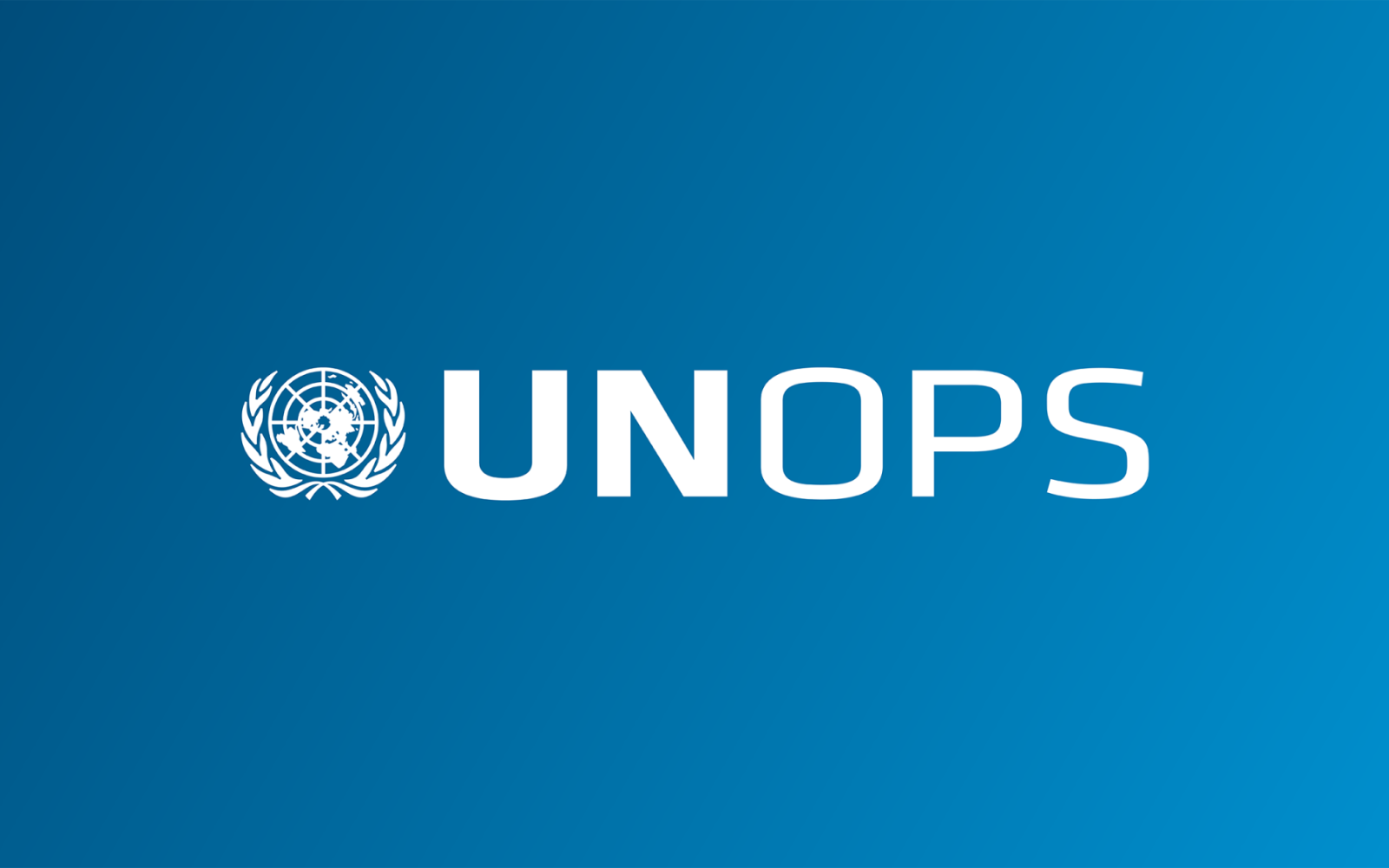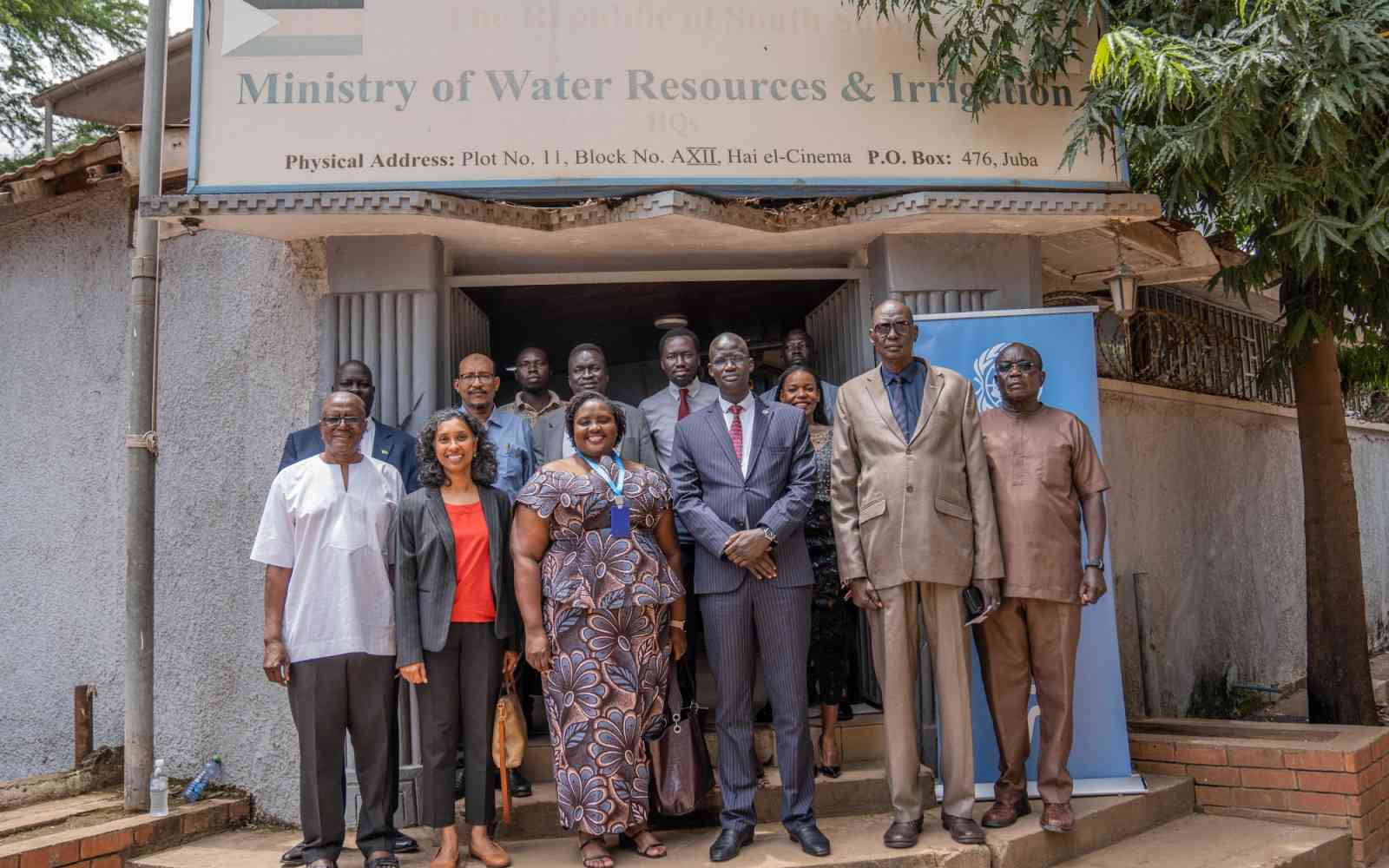The United Nations Office for Project Services (UNOPS)
Social safety net project extended to new counties in South Sudan
The 'Productive Safety Net for Socio-economic Opportunities' project – popularly known as 'Shabaka Meisha' – will benefit more than 157,000 vulnerable households, including refugees and host communities.
This article was originally published on 8 March 2024 and has been updated to reflect recent project developments.
Latest updates
August 2025
A high-level delegation from the government of South Sudan and the World Bank Group visited project sites in Torit County in Eastern Equatoria State to observe and assess the implementation of the Shabaka Meisha Project.
During the visit, the delegation inspected labour-intensive public works activities, including the rehabilitation of community access roads and climate-smart project components related to farming.
“As a nation emerging from conflict, social safety nets are essential to building the resilience of vulnerable households, especially those headed by single mothers, children and the elderly,” said Esther Ikere, Ministry of Gender, Child and Social Welfare Under Secretary.
“This project aligns with our national goals to ensure food and nutrition security, create jobs and empower vulnerable people to participate in economic development,” said Rev. Taban Elunai, Director of Agriculture Extension, Ministry of Agriculture and Food Security.
"The World Bank is committed to supporting South Sudan in building a robust social protection system that empowers its citizens and promotes sustainable development,” said Charles Undeland, the World Bank Group Country Manager for South Sudan.
Read more here.
May 2025
A second round of cash transfers – which will support some of the most vulnerable households – has launched in 12 counties. Maban, Pariang and Aweil West received cash transfers during the first round.
The cash transfers component will be expanded to other project locations nationwide once the identification and registration process for beneficiaries is complete.
UNOPS, the World Bank, the Ministry of Agriculture and Food Security and the Ministry of Gender, Child and Social Welfare also conducted a joint field visit on 13 May to assess the progress of implementation of the project, with an emphasis on the labour-intensive public works component of the project in Kator South Quarter Council, Juba County.
8 October 2024
The World Bank recently provided additional funding for the Shabaka Meisha project, allowing it to be extended to five more counties: Leer, Malakal, Rubkona, Rumbek North and Yambio.
Initially covering 15 counties and reaching more than 96,000 households, the project now covers 20 counties – reaching more than 157,000 household beneficiaries.
Additional information available here.
#HappeningNow!!. In Torit, South Sudan: Gov’t officials & @WorldBank visit #ShabakaMeisha sites to assess cash transfers & labor-intensive public work progress—advancing food security & livelihoods. #UNOPS leads Component 1: Direct Income Support & LIPWs. #SNSOP #SocialProtection pic.twitter.com/U7U47FgJ2j
— UNOPS South Sudan (@UNOPSSouthSudan) August 5, 2025
South Sudan lacks a reliable social safety net system to respond to vulnerable communities when crisis strikes. The project – which builds on the success of the World Bank-supported 'Safety Net and Skills Development' and 'South Sudan Safety Net' projects – aims to strengthen the country's national safety net delivery system.
Strong social safety nets help support vulnerable communities, strengthen resilience to shocks and stresses, and promote longer-term recovery and development.
The World Bank-funded four-year project is being implemented by the government of South Sudan with support from UNOPS. It will provide cash assistance to low-income and vulnerable households to meet immediate needs and build resilience.
Participants – at least 65 per cent of whom are women – will also be employed on labour-intensive public works projects as well as take part in training focused on financial literacy, early childhood development, and water, sanitation and hygiene.
Previously launched in Bor, Gogrial West, Juba, Kapoeta East, Melut, Pibor, Raja, Tonj South, Torit and Yei, the project has now been extended to five new counties across South Sudan: Aweil West, Maban, Mundri West, Pariang and Pochalla.
"The project will also contribute to achieving gender parity by ensuring meaningful female participation in local community structures established by the project, promoting women's voices and agency in the community,” said Minister of Gender, Child and Social Welfare Aya Benjamin Warille.
Read more here.











